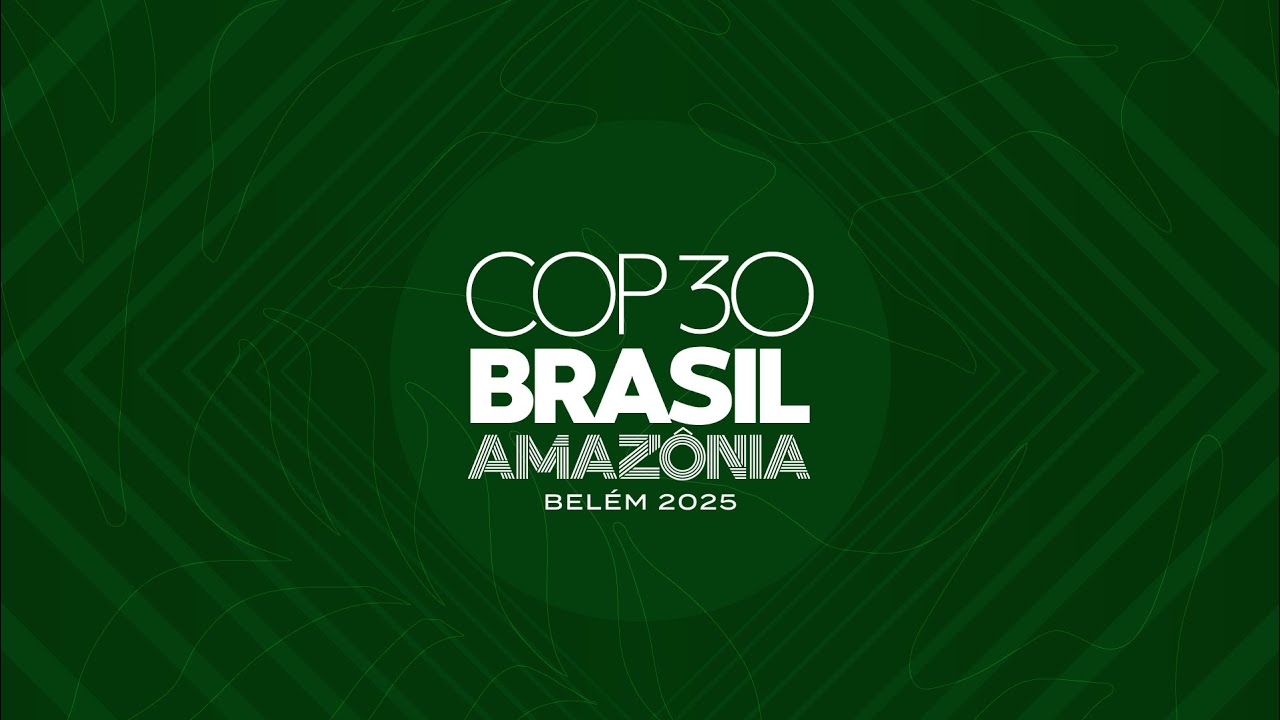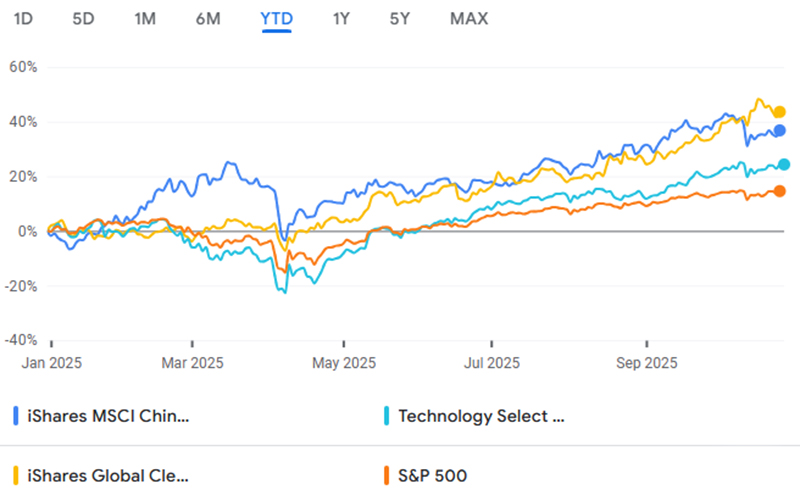Not a part of the system
If I had to hazard a guess, my Spotify Wrapped artist of the year will probably be The Lonely Island, a band formed on Saturday Night Live that produces comedy songs. They have a banger of a song called ‘Threw it on the Ground’ in which Andy Samberg, playing a rebel against society, sings “I'm not a part of your system, my dad’s not a phone”. Lyrical genius aside, the line came to mind recently while thinking about COP30. Because much like Andy Samberg’s rebel, COP30 insists it stands apart, when in truth it’s just another cog in a much larger machine.
This year’s COP, held in Belém at the edge of the Amazon, is billed as the global stocktake of the planet’s health. In practice, it will likely offer the usual choreography: soaring rhetoric, exhausted delegates and a closing statement worded to mean everything and nothing. The real fight over climate isn’t between activists and oil executives, it sits within the macro-system itself, with the superpowers Washington and Beijing vying for control of geopolitics, and consequently the energy transition itself.
So COP30 may host the speeches, but the battleground lies in trade routes, data centres, mineral supply chains and misinformation networks. Climate change is no longer a stand-alone issue; it’s a systems problem. And systems problems bend to whoever controls the inputs – natural resources, capital and narrative.

America’s retreat
The United States, once the architect of global climate cooperation, is now busy dismantling its own scaffolding (quite reflective of a polarised world that has reached peak political entropy in Mamdani v. Trump, Greens v. Reform etc.) as politics, not physics, dictates environmental timeframes.
Said scaffolding falling apart includes the world’s largest banking coalition for net-zero commitments, the Net-Zero Banking Alliance, being formally dissolved this month after Wall Street’s mass exodus under Republican pressure, and the Department of Energy quietly removing references to “green” and “climate change” from its internal communications, all whilst federal wildfire spending has doubled in a year. Safe to say, Trump’s second term has prioritised energy independence and immediate industrial strength, something it views as crucial to beat China in the likes of AI and beyond.
America’s hesitation is less ideological than structural: it is the only major power with both cheap hydrocarbons and a democracy designed for two-year congressional time horizons. Why fight for decarbonisation when shale still pays and dependence on Chinese minerals feels like strategic suicide whilst you’re in the midst of fighting to remain the hegemon?
Even Canada’s Mark Carney (once UN climate envoy) has changed hymn sheets. Now prime minister, he’s scrapped Trudeau’s carbon tax, fast-tracked liquified natural gas exports, and flirted with reviving the Keystone pipeline. The man who told central banks about stranded oil assets now defends drilling as “doing what’s best for Canada.”
Washington’s retreat leaves a vacuum, and vacuums invite improvisation. Without US leadership, climate coordination has splintered into national experiments and corporate self-definition. Each country now crafts its own “transition plan,” each company its own “sustainability.”
The void has been filled with noise - AI-generated misinformation to be specific. As climate scientist Simon Clark notes, synthetic news sites such as Climate Cosmos produce realistic but false stories that undermine public trust. The result is an electorate paralysed between fatigue and cynicism, leaving space for populist narratives to shift attention towards matters of existential national importance like AI, not international issues like climate change.
China’s calculated advance
Across the Pacific, Beijing is framing climate action as industrial, geopolitical strategy – again I’d argue politics, not physics, is dictating the country’s climate policy.
The Chinese Communist Party’s recent Fourth Plenum centred on “anti-involution” – curbing wasteful competition and consolidating profits. So, while Washington argues over whether green energy is “woke,” China is busy making it an ever-important, soft power export category via its global ports.
At the time of writing, the S&P 500 (14.57% in USD terms) and SPDR Technology Select Sector (24.33% in USD terms) this year have been outpaced by both the iShares Global Clean Energy ETF (43.59% in USD terms) and the iShares MSCI China ETF (36.81% in USD terms), with the latter driven by solar expansion and AI-optimised manufacturing. Lithium miners have doubled valuations as provinces cap output to stabilise prices, and semiconductor firms such as SMIC have soared to triple digits amid a state-engineered break from US chips. “New productive forces”, Xi Jinping’s current slogan, is less about Marxist poetry and more about impenetrable market share in robotics, EVs and grid tech of which China wants other countries to rely upon.

Green technology in China is both a growth driver and a geopolitical weapon – one the US is wary of and positioning itself to defend against through fossil fuels, not just because of Trump’s blustering. For example, BYD’s new charging networks across Africa are extending Chinese standards abroad. Paired with yuan internationalisation and gold collecting, Beijing’s ambitions hint at turning the renminbi into the reserve currency of the green, abundant energy era, where the dominant power and rhetoric is theirs.
COP30 vs realpolitik, in the age of rainforests and rockets
For all its dysfunction, COP30 still matters because it reflects the new climate order. It’s where Washington’s absence will be noted, Beijing’s confidence displayed, and the rest of the world reminded that moral appeals mean little without mineral access. The Paris Agreement was about cooperation. Belém, in my opinion, will be about competition.
Seen through a systems lens, climate change is actually a stress test for civilisation in addition to being an environmental issue. Energy security defines foreign policy, rare earths shape trade, misinformation reshapes public will. The US and China aren’t arguing over carbon; they’re redesigning the architecture of the global economy partially through it.
COP30 will close with declarations about solidarity, forests and finance. But the real progress, the kind that bends the emissions curve, will emerge from the calculus of self-interest between Washington and Beijing. Climate cooperation may not endure through virtue (though perhaps rivalry provides the best chance) as the same market-style competitive logic that built nuclear deterrence, space programmes and AI may yet build a low-carbon world.
For investors, that’s the terrain that matters. Whoever turns decarbonisation (be it for or against) from a talking point into a global balance-of-power advantage – wins.
As for us here at Titan Wealth, these are the levels of discussions that we are holding in order to consider where the best opportunities lie for our clients in the upcoming months and years. “Changing world” isn’t just a throwaway phrase, it’s happening right now before our eyes and it’s a theme we’re consequently investing in substantially.


